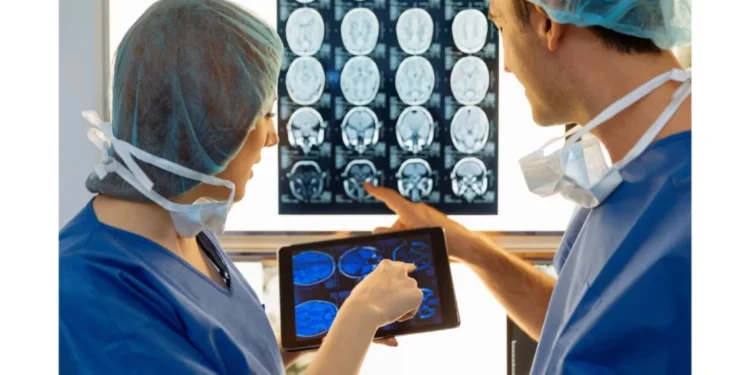A new artificial intelligence model known as BioMedGPT has been introduced, marking a major breakthrough for the research and healthcare industries. This cutting-edge tool is intended to completely transform the way researchers and medical professionals evaluate and comprehend intricate scientific data. BioMedGPT provides a flexible system that can improve patient care by streamlining research, improving diagnostics, and combining the ability to analyze both text and images. The esteemed journal Nature Medicine has published this study.
What’s New:
A revolutionary AI model called BioMedGPT is looking to revolutionize the domains of biomedical research and medicine. It is referred to as “the first open-source and lightweight vision-language foundation model, designed as a generalist capable of performing various biomedical tasks.” Lehigh University assistant professor of computer science and engineering Lichao Sun oversaw the project alongside a team of researchers from several different universities, including Massachusetts General Hospital (MGH).
Key Insight:
BioMedGPT merges two types of AI capabilities: understanding biomedical images (like X-rays) and processing biomedical text (such as research papers). This combination allows healthcare providers to use a single tool for diverse applications, making it easier to interpret complex medical data. As Sun explains, “This work combines two types of AI into a decision support tool for medical providers,” highlighting its potential to tackle a wide range of biomedical challenges.
The pre-trained and fine-tuned models, as well as source code for training, inference, and data preprocessing, can be accessed here.
How This Works:
The technology behind BioMedGPT is based on foundation models, which are large AI systems pre-trained on vast amounts of data. These models can be fine-tuned for specific tasks with minimal additional training. BioMedGPT was trained on extensive datasets that include both images and textual information, enabling it to understand and generate insights from various biomedical modalities. The model’s architecture allows it to align different types of data, making it possible to “communicate” with biological information using natural language.
Result:
In evaluations involving 25 datasets across nine biomedical tasks, BioMedGPT achieved remarkable results, outperforming many existing models. It demonstrated robust predictive abilities in radiology tasks, achieving 16 state-of-the-art results. As co-author Kai Zhang noted, “A human evaluation of BioMedGPT on three radiology tasks showcased the model’s robust predictive abilities.” The model’s performance suggests that it could significantly enhance the efficiency and accuracy of medical diagnoses and research processes.
Why This Matters?
The introduction of BioMedGPT is significant for several reasons. First, it streamlines the workflow for healthcare professionals by providing a versatile tool that can tackle multiple challenges at once. This could lead to faster diagnoses and improved patient care. Additionally, the open-source nature of the model allows researchers worldwide to access and build upon this technology, fostering innovation in biomedical AI. Zhang emphasizes the potential impact: “The potential impact of such technology is significant as it could streamline many aspects of healthcare and research.”
We’re Thinking-
Looking ahead, BioMedGPT has a wide range of possible uses. It could help academics more effectively evaluate scientific publications and enable physicians to understand complex medical images. Additionally, its capacity to forecast molecular behaviors could speed up the drug discovery process. Experts from a variety of disciplines, including computer science, medicine, radiography, and more, worked together on this project. “This research is highly interdisciplinary and collaborative,” Sun continues, highlighting the value of collaboration in the advancement of healthcare technologies.
With the potential to improve clinical decision-making and research capacities while opening the door for further advancements in healthcare, BioMedGPT is, all things considered, a major step forward in the integration of AI into medicine.


















